Peru's Congress on Thursday opened a key debate on whether to launch impeachment proceedings against President Pedro Pablo Kuczynski over allegations of graft and covering up ties to the disgraced Brazilian construction group Odebrecht.
Defending himself, Kuczynski made a forceful plea to lawmakers this morning, insisting he had no involvement in payments by Brazilian construction company Odebrecht to his private consulting firm and that a rushed impeachment proceeding would threaten the nation's democracy.
"I am here to look you in the eye," he said, speaking slowly and assertively. "And tell you that I am not corrupt and I have not lied."
The 79-year-old former Wall Street banker is in a fight for his political survival after an opposition-led investigative committee revealed documents showing the Brazilian construction giant at the centre of Latin America's largest corruption scandal made US$782,000 in payments to his consulting firm a decade ago. Some of the payments overlap with years that Kuczynski spent as a government minister.
If lawmakers succeed in removing him, Kuczynski would become the region's first sitting president ousted over the Odebrecht corruption scandal.
Analysts worry the impeachment vote could usher in a new period of uncertainty for Peru, one of the region's most politically volatile nations. The vote is scheduled to come just eight days after the Odebrecht documents were first disclosed and is being pushed by the opposition Popular Force party led by Keiko Fujimori, who is the daughter of jailed former president Alberto Fujimori and who narrowly lost to Kuczynski in last year's presidential election.
"That they would impeach the president is not an unthinkable thing," said Steve Levitsky, a Harvard University political scientist who has spent years studying Peru. "It's that they would do it in a week without serious investigation, without a serious process of public debate."
Latin American politicians
High-ranking politicians across Latin America are being charged and sentenced to jail for taking bribes from Odebrecht. In a 2016 plea deal with the US Justice Department, the construction giant admitted to paying nearly US$800 million to politicians, their campaigns and political parties in return for lucrative public works contracts that earned the company some US$3.3 billion in profits.
In Ecuador, Vice-President Jorge Glas has been sentenced to six years in jail for orchestrating an Odebrecht bribery scheme. Former Brazilian president Luiz Inácio Lula da Silva is appealing his conviction on charges of corruption and money laundering related to the plot.
In Peru, two former presidents stand accused of accepting money from Odebrecht. One is behind bars and the other in the US seeking to avoid extradition.
In a letter to a Peruvian newspaper Saturday, Odebrecht confirmed Kuczynski's assertion that the payments in question were all handled by his colleague, Gerardo Sepulveda. Though little has been shared regarding exactly what services Kuczynski's Westfield Capital provided, Odebrecht officials said the money was taxed, accounted for and not part of the corruption investigation.
During his 30-minute testimony Thursday, Kuczynski showed the contracts in question on an overhead screen, pointing out that none contained his signature. He reiterated earlier assertions that he had no knowledge of the payments and that he never favoured any company while minister or president.
"What's in play here is not the impeachment of a president but the democracy that cost Peru so much to recover," he said.
OAS observers
On Tuesday, Kuczynski wrote to the Organisation of American States requesting that the Washington-based group send an observer to monitor impeachment proceedings. The OAS said it was sending two delegates to Lima for Thursday's vote.
The president's detractors contend he should have disclosed the payments before taking office and that, at the very least, as a high-ranking government minister when the money was paid he should have done a better job to shield himself from potential conflicts of interest. Polls within Peru suggest a majority of Peruvians want the already deeply unpopular president out of office.
As a senior business leader and statesman with many ties to the private sector, Kuczynski was "sort of Trump-like in not clearly breaking those ties. And he's paying a price for it," Levitsky said.
In order to oust Kuczynski, opposition lawmakers would need to secure 87 of 130 votes. The Popular Force party holds 71 seats in Congress. Party spokesman Daniel Salaverry said that if Kuczynski appears Thursday, “it should be to submit his resignation letter."
Lawmakers are expected to debate Kuczynski's potential removal for several hours before holding a vote later Thursday.
If Kuczynski should be removed, First Vice-President Martin Vizcarra would be next in line. The former engineer has relatively little political experience at a national level and it is likely he would face many of the same difficulties Kuczynski has encountered in governing.
Explainer
WHY ARE LAWMAKERS CONSIDERING OUSTING PERU'S PRESIDENT?
Opposition leaders in Congress initiated impeachment proceedings against Kuczynski after an investigative committee revealed documents showing his private consulting firm received US$782,000 in payments from Odebrecht more than a decade ago. Some of those payments overlap with Kuczynski's years as a government minister.
While no-one has proven that Kuczynski committed a crime, proponents for his removal say he should have disclosed the payments and at the very least he failed to recognise a conflict of interest.
Kuczynski's approval rating has hovered below 20 percent and he has struggled to push through legislation since taking office in 2016. The opposition Popular Force party led by former first daughter Keiko Fujimori holds a majority in congress and is spearheading the impeachment vote. They will need 87 of 130 votes, which would immediately remove him from office.
WHAT IS THE PRESIDENT'S DEFENCE?
The former Wall Street Banker contends he left the reins of the consulting company, Westfield Capital, in the hands of business partner Gerardo Sepulveda while he served in government and had no knowledge of the Odebrecht payments. Kuczynski also asserts he reported and paid taxes on all Westfield Capital earnings.
Odebrecht has confirmed that it dealt exclusively with Sepulveda and stated that the transactions were not part of the larger corruption investigation currently underway in Peru.
The president likens the attempt to remove him as an "impeachment express" fueled by his opponents. In a letter to the Washington-based Organisation of American States, he said his ouster threatens the nation's democracy.
WHAT IS ODEBRECHT ACCUSED OF DOING IN LATIN AMERICA?
In a 2016 plea deal with the US Justice Department, the construction company has admitted to paying nearly US$800 million in bribes in a dozen countries — all but two of which are in Latin America. The bribes were paid to politicians, their campaigns and political parties to secure lucrative public works contracts and stretched into the highest echelons of government.
In Peru, Odebrecht has acknowledged paying at least US$29 million to politicians and earning US$143 million in profits as a result.
WHO HAS BEEN JAILED OR REMOVED FROM OFFICE?
If he is voted out, Kuczynski would become the first sitting president removed from office in Latin America as a consequence of the Odebrecht scandal.
Former Brazilian president Luiz Inácio Lula da Silva is appealing a corruption conviction, while former Peruvian president Ollanta Humala is awaiting trial. Another former Peruvian president, Alejandro Toledo, has been accused of taking US$20 million in bribes from Odebrecht and is currently in the US seeking to avoid extradition. In Ecuador, Vice-President Jorge Glas was recently sentenced to six years in prison for orchestrating an Odebrecht bribe scheme.
Meanwhile, dozens of other political leaders are under investigation as public prosecutors across Latin America continue to bring charges against lawmakers who participated in the scheme.
WHAT IMPACT MIGHT KUCZYNSKI'S OUSTER HAVE?
During his 16 months in office, Kuczynski has been outspoken in his criticism of Venezuelan President Nicolás Maduro, lambasting that country's socialist government as a dictatorship and inviting regional leaders to Peru to find a diplomatic solution to its political crisis. He was also the first Latin American president to meet with Donald Trump, telling the US leader that he prefers "bridges to walls."
Whether a successor might remain a vocal leader on foreign affairs is uncertain, but within Peru it is unlikely a new president would deviate significantly from Kuczynski's policies. First Vice-President Martin Vizcarra campaigned with Kuczynski and is next in line to become president. He would likely encounter many of the same obstacles Kuczynski has faced in governing.
- TIMES/AP/AFP












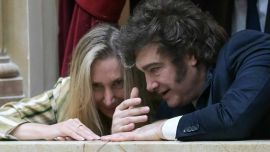


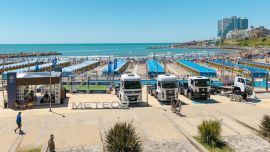






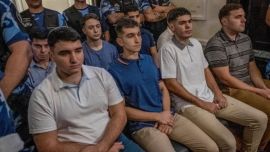
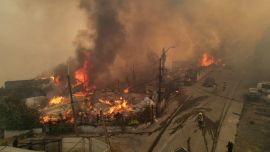
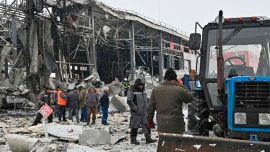
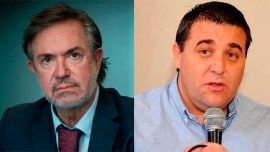
Comments